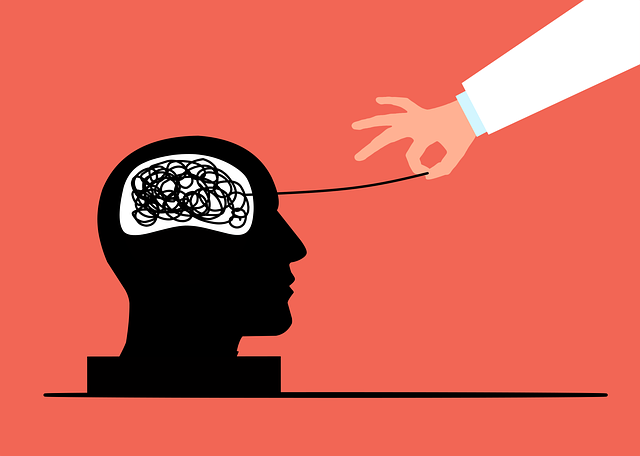Arvada Mindfulness Therapy promotes mental wellness through innovative self-assessment tools that emphasize mindfulness, self-awareness, and stress reduction. These tools help individuals evaluate their emotional states, develop personalized strategies for improvement, and enhance overall well-being. By incorporating techniques like Compassion Cultivation Practices and Emotional Intelligence, these assessments provide a comprehensive view of mental health journeys, supporting inclusive and supportive therapy environments as Mental Illness Stigma Reduction Efforts gain traction.
Mental wellness is a cornerstone of overall health, and self-assessment tools play a pivotal role in promoting awareness and early intervention. This article explores the development of effective self-assessment tools for mental wellness, focusing on the innovative approach taken by Arvada Mindfulness Therapy. We delve into understanding mental wellness fundamentals and the creation of tailored therapy tools. Additionally, we examine implementation strategies and methods to evaluate their effectiveness, highlighting how such tools can revolutionize mental health support.
- Understanding Mental Wellness and Self-Assessment
- Developing Arvada Mindfulness Therapy Tools
- Implementing and Evaluating the Effectiveness of Self-Assessment Tools
Understanding Mental Wellness and Self-Assessment

Mental wellness is a crucial aspect of overall health and well-being. It encompasses emotional, psychological, and social aspects, influencing how individuals think, feel, and act in their daily lives. Understanding mental wellness involves recognizing its dynamic nature and acknowledging that it can fluctuate based on various factors such as stress, relationships, and personal experiences. At Arvada Mindfulness Therapy, we believe that fostering mental wellness is a proactive approach to living a fulfilling life.
Self-assessment tools play a pivotal role in this process, enabling individuals to gain insights into their mental health status. These tools, often employing practices like mindfulness, self-awareness exercises, and stress reduction methods grounded in Mind Over Matter principles, facilitate personal reflection and evaluation. By utilizing these techniques, users can identify areas of improvement and develop tailored strategies for enhancing their mental wellness.
Developing Arvada Mindfulness Therapy Tools

In recent years, there’s been a growing emphasis on mental wellness, leading to the development of innovative self-assessment tools like Arvada Mindfulness Therapy. These tools are designed to help individuals cultivate mindfulness, a crucial aspect of maintaining good mental health. By integrating Arvada Mindfulness Therapy into daily routines, users can enhance their ability to manage stress, improve focus, and promote overall well-being. This approach not only complements traditional therapy but also empowers individuals to take an active role in their mental wellness journey.
One key component of Arvada Mindfulness Therapy is its focus on communication strategies. Effective communication is essential for managing relationships and resolving conflicts, two areas that significantly impact mental health. Additionally, these tools incorporate positive thinking exercises, helping users cultivate a more optimistic outlook, which can mitigate the effects of stress and anxiety. Moreover, conflict resolution techniques are integrated to equip individuals with skills to navigate challenging situations constructively, thereby fostering healthier interactions and emotional resilience.
Implementing and Evaluating the Effectiveness of Self-Assessment Tools

Implementing self-assessment tools for mental wellness is a valuable step in promoting individual awareness and fostering personal growth. These tools can range from simple questionnaires to more complex digital platforms, each designed to evaluate various aspects of one’s mental health. At Arvada Mindfulness Therapy, we recognize the power of such assessments in helping individuals understand their emotional states and identify areas for improvement. By utilizing these methods, clients can gain valuable insights into their mental well-being, enabling them to make informed decisions about their personal development.
Effective self-assessment tools should be regularly evaluated for their impact and accuracy. This involves measuring the tool’s ability to predict outcomes, track progress over time, and facilitate positive changes. For instance, incorporating Compassion Cultivation Practices or Emotional Intelligence concepts into these assessments can provide a comprehensive view of an individual’s mental health journey. As Mental Illness Stigma Reduction Efforts continue to gain momentum, self-assessment tools that promote understanding and acceptance can play a significant role in creating a more inclusive and supportive environment for those seeking therapy.
The development of mental wellness self-assessment tools, as demonstrated by Arvada Mindfulness Therapy initiatives, offers a promising approach to enhancing individual well-being. By utilizing evidence-based practices like mindfulness, these tools empower people to take an active role in their mental health management. Through effective implementation and ongoing evaluation, self-assessments can identify areas of concern and guide personalized interventions. This proactive approach has the potential to revolutionize access to mental wellness support, fostering a healthier and more resilient community.












